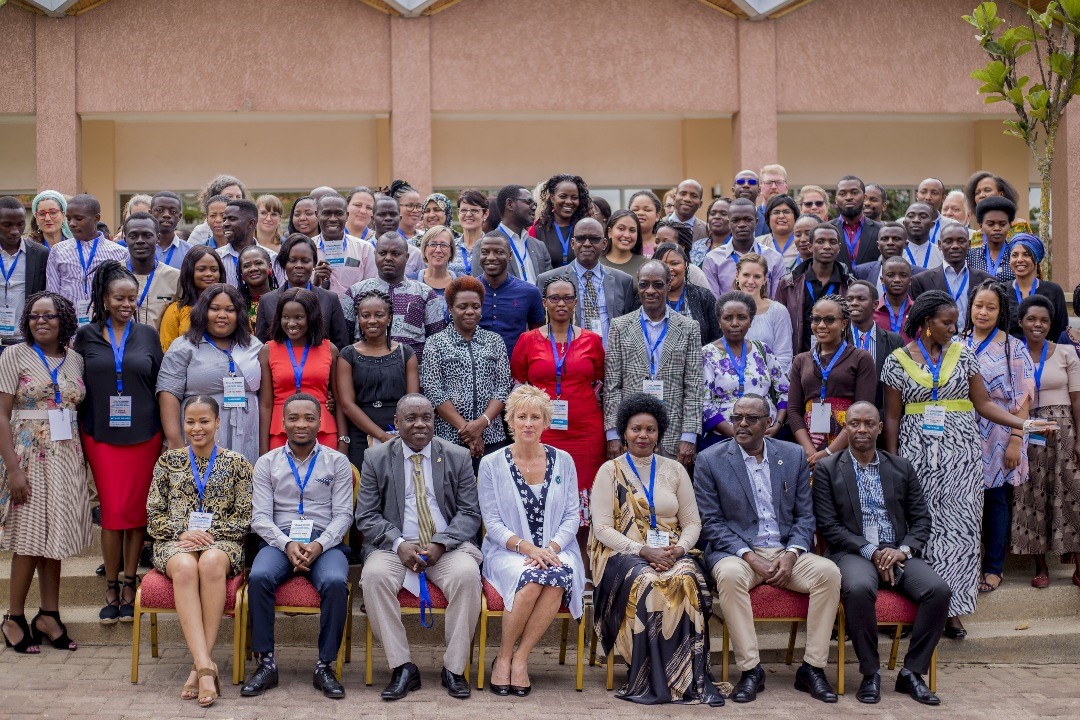About Us

Rwanda Occupational Therapy Association (RWOTA) is a professional association formed in 2015 founded by Occupational Therapist in Rwanda.
It is a nonprofit organization working with different partners including the University of Rwanda, Handicap International Rwanda, Occupational Therapy Africa Region Group, World Federation of Occupational Therapy, Rwanda Allied Health Professions Council, and many others to promote quality Occupational Therapy for the people of Rwanda.
Our Mission
The mission of RWOTA is to promote quality Occupational Therapy for the people of Rwanda
Our Vision
- •To advocate for and promote quality development of Occupational Therapy throughout Rwanda
- •To provide an association for any person who is qualifies as member
- •To provide support and encourage initial and further education of occupational Therapists
- •To disseminate professional information for the benefit of occupational Therapy in Rwanda
- •To act as advisor to the Rwandan Allied Health Professional Council on occupational Therapy practice in Rwanda
- •To participate whenever Occupational Therapy expertise contributes to policy making in the areas of prevention, curative and rehabilitative matters
Our Core Values
We value professionalism and uphold the RWOTA Code of Ethics and Code of Conduct.
We build an inclusive environment through mentoring, delivering on commitments, working together with trust, and enjoying the camaraderie of each other.
We learn, share insights, and encourage our members to make a difference today and for the future.
We contribute to the Association, IT profession, and society utilizing leadership, appropriate solutions, and sound processes.

What is OCCUPATIONAL THERAPY?
Occupational therapy is a client-centered health profession concerned with promoting health and well being through occupation. The primary goal of occupational therapy is to enable people to participate in the activities of everyday life.
Occupational therapy practitioners provide habilitation and rehabilitation services, which are among the essential health benefits of the affordable health care. In addition, occupational therapy's holistic approach compliments the affordable health care's focus on wellness and prevention.
By focusing on wellness, managing chronic disease, improving function, and supporting independence, occupational therapy practitioners can help the inter-professional primary care team improve outcomes while decreasing cost.
OTs work with individuals across the lifespan from infancy to older adulthood and in all aspects of the recovery continuum including acute, subacute, rehabilitation, community and chronic phases. In all of these practice areas, OTs address disability in real life settings that matter to clients including home, community, school and work.
OTs are skilled health care professionals providing goal-oriented rehabilitation for clients who have sustained musculoskeletal injuries (soft tissue and orthopedic), concussions, brain injuries, spinal cord injuries, neuro-developmental conditions such as (cerebral palsy, brachial plexus injuries, down syndrome,...) and trauma-induced or aggravated mental health conditions such as PTSD, depression and anxiety.
In addition, OTs are expert therapist in hand and upper limb rehabilitation and fabrication and prescription of the upper limb orthoses (splint), and assistive devices.
Some interventions serve to minimize the underlying limitation, while others help the individual compensate for the limitation in both the short and long term. OTs provide rehabilitation using a diverse range of interventions, each with the purpose of facilitating improved functioning, enabling clients to apply newly-developed skills.
As experts in function, OTs utilize functional markers to guide continuation, modification or conclusion of services. With treatment guided by function as opposed to symptoms, the focus is on enabling the individual to overcome barriers and return to activities of everyday living.

OT in Neonatal Care
Today March 23, 2021 Mr. Albert Habinshuti OT/L PDC Occupational Therapist shared a presentation on OT role in Neonatology and early interventions with Rwanda Biomedical Center (RBC) technical working groups of pediatricians through Partners in health for their started implementation in NICU and Early interventions for children with or at Risk of developmental disabilities.
Main areas highlighted:
- Sensory components
- ADLs (Activities of Daily Living)
- Performance skills and environmental adaptation
Why OT in Neonatal Care Unit?
- Early identification and intervention for children with or at risk of developmental difficulties
- Monitor and enhance infants' daily activities (feeding, sleep and rest, play,...)
- Check for developmental reflexes that inhibit child motor functions
- Perioral stimulation (to enhance feeding, sucking and swallowing skills)
- Developmentally supportive positioning
- Advice on environmental adaptations
- Sensory stimulation and modulation